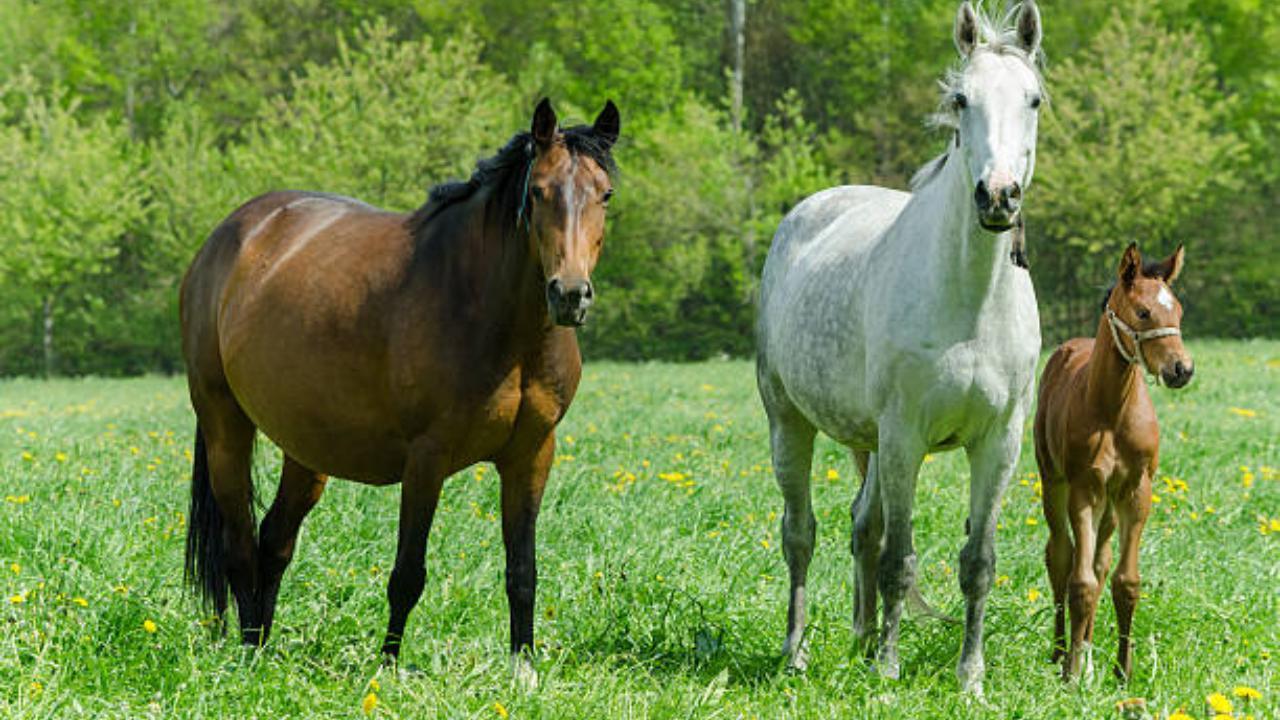A study of horses, which share significant similarities with humans in chromosomes and pregnancies, revealed that 42 per cent of miscarriages and spontaneous abortions in the first two months of pregnancy were due to complications from an extra set of chromosomes, a condition called triploidy

Image for representational purposes only. Photo Courtesy: iStock
Human miscarriages could finally be decoded by their mammalian counterparts, horses, shows a new study.
ADVERTISEMENT
A study of horses, which share significant similarities with humans in chromosomes and pregnancies, revealed that 42 per cent of miscarriages and spontaneous abortions in the first two months of pregnancy were due to complications from an extra set of chromosomes, a condition called triploidy.
“Over that embryonic period (up to eight weeks from conception), triploidy had rarely been reported in mammals outside of women,” said Mandi de Mestre, professor of equine medicine at Cornell University.
“The study tells us that over the first six weeks of gestation, this will likely be the primary cause of pregnancy loss following natural conception,” said De Mestre who is the corresponding author of ‘Naturally Occurring Horse Model of Miscarriage Reveals Temporal Relationship Between Chromosomal Aberration Type and Point of Lethality’.
The study will be published in the Proceedings of the National Academy of Sciences.
Human miscarriages occur in 10-20 per cent of pregnancies and are commonly associated with chromosomal errors, but there have been no suitable animal models that truly duplicate the features of the condition.
The new research findings will help veterinarians better understand the causes of pregnancy loss in horses and identify horses as an excellent model for studying human miscarriage.
“We were able to study the impact of chromosome errors across the entire pregnancy in the horse. We found that triploidy is only associated with losses in early pregnancy,” de Mestre said.
In the study, de Mestre’s laboratory at Cornell and earlier at The Royal Veterinary College, London, received fetus and placenta samples from veterinarians who treated horses with failed pregnancies over a period of 10 years.
Researchers investigated the prevalence of different types of chromosomal errors associated with pregnancy loss.
Chromosomal errors were found in 57.9 per cent of losses up to day 55 of gestation, 57.2 per cent of losses between days 56 and 110, and only 1.4 per cent of losses between days 111 and the end of pregnancy.
Aneuploidy was mainly associated with miscarriages in the first 10 weeks, while deletions or duplications were found in miscarriages after 110 days.
These findings were similar to those observed in studies in women.
The study's findings will likely change clinical management of pregnancies in horses and point researchers toward new diagnostic tests and investigations into molecular mechanisms leading to chromosomal abnormalities.
This story has been sourced from a third party syndicated feed, agencies. Mid-day accepts no responsibility or liability for its dependability, trustworthiness, reliability and data of the text. Mid-day management/mid-day.com reserves the sole right to alter, delete or remove (without notice) the content in its absolute discretion for any reason whatsoever
 Subscribe today by clicking the link and stay updated with the latest news!" Click here!
Subscribe today by clicking the link and stay updated with the latest news!" Click here!







